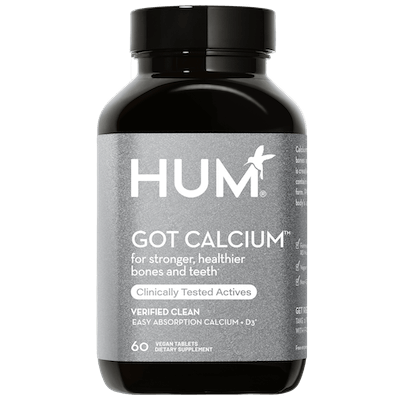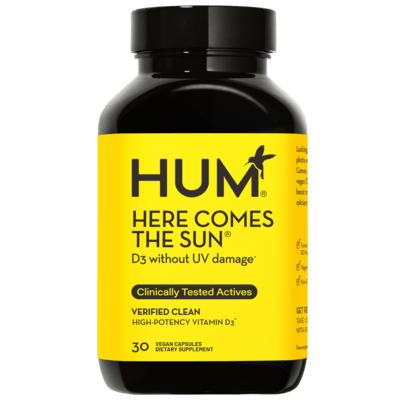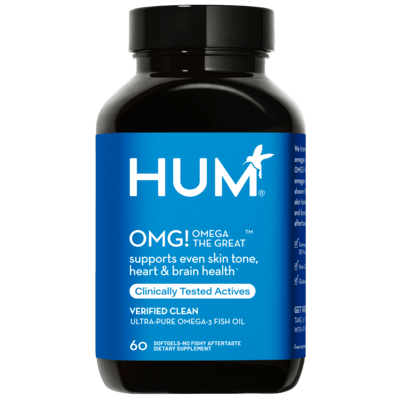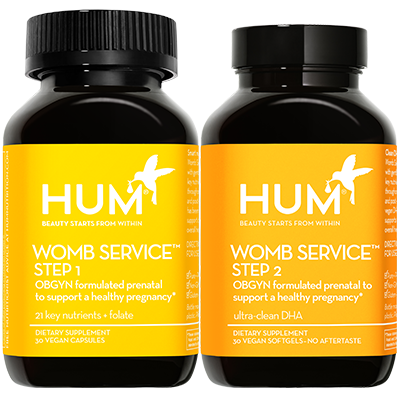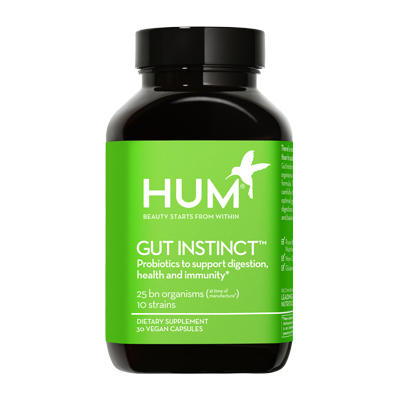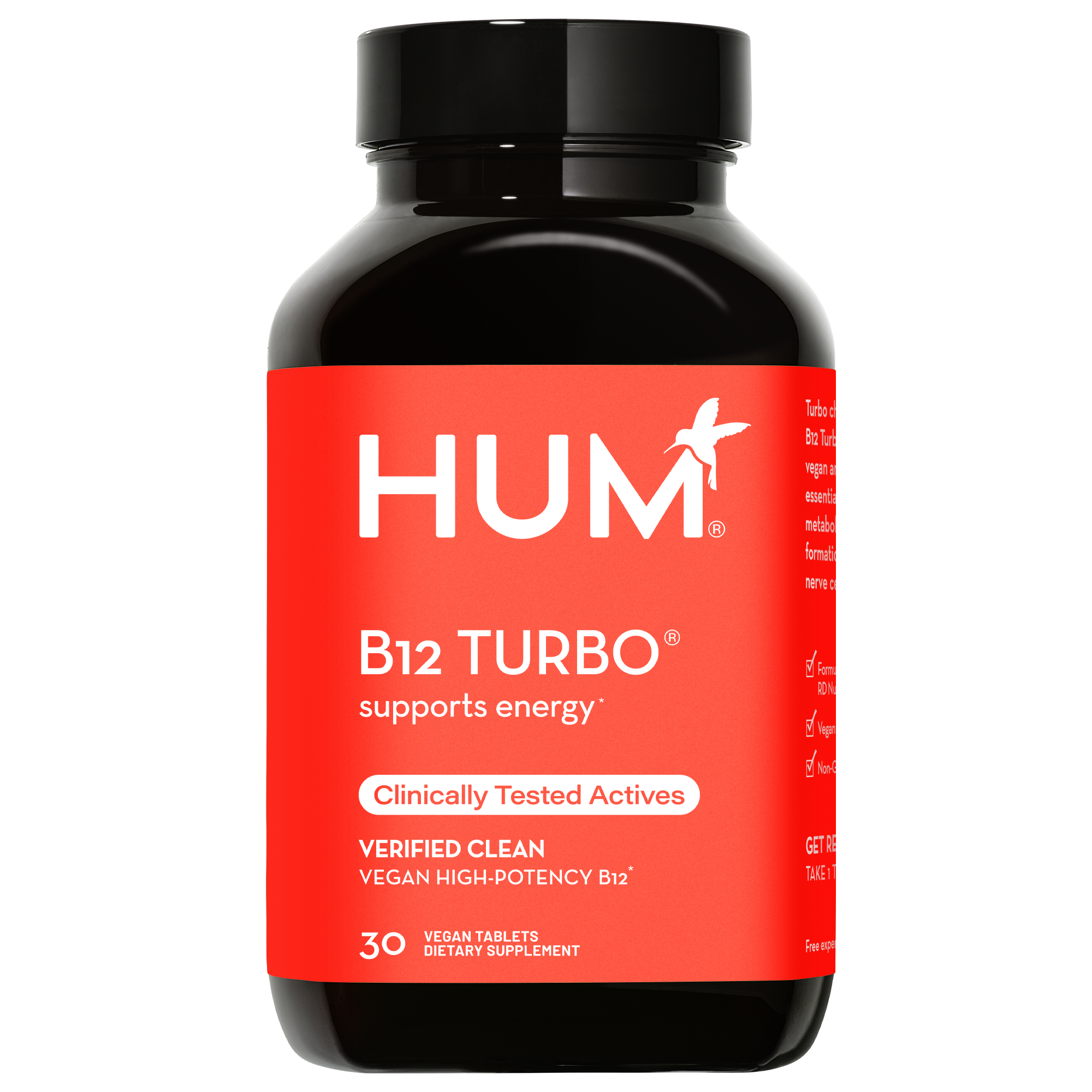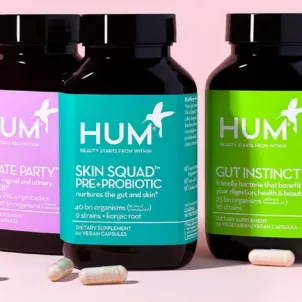The Best Vitamins to Take (and Avoid) While Pregnant
Gaby Vaca-Flores, RDN, CLE, shares recommended vitamins to take while pregnant. Plus: additional supplements for a healthy pregnancy, other prenatal nutritional needs, and vitamins to avoid during pregnancy.
Is it safe to take vitamins during pregnancy? If so, what vitamins should I take while pregnant?
These are some of the most common questions that dietitians get from expectant and new mothers. It’s no secret that proper nourishment can better optimize your pre- and postnatal care. But exactly which vitamins and supplements should you take during pregnancy?
In this article, we’re bringing things back to science-backed basics. When it comes to supplements and pregnancy, we’ve compiled the information you need to have a safe and healthy term.
One important note: This information should not be used in lieu of professional medical advice. Always follow guidance from your OB-GYN and/or primary care physician.
The Importance of Prenatal Nutrition
Meeting your daily nutrient needs during pregnancy is necessary to keep up with your rapidly-changing maternal metabolism. Maternal nutrition is essential for healthy fetal growth and development. In fact, there’s growing research that suggests the effects of prenatal nutrition can trickle into adulthood. And there are certain vitamins and minerals that are crucial for healthy development, like iron, folate, vitamin D, and vitamin B12—all of which support proper growth of the fetus. For that reason, it’s important to learn about necessary vitamins and minerals for pregnant women, as well as additional supplement and macronutrient needs.
The Best Supplements to Take During Pregnancy

In addition to the vitamins and nutrients discussed above, here are five of the best supplements to take while pregnant.
1. Prenatal Multivitamin
A prenatal vitamin is one of the best vitamins to take during pregnancy. These multivitamins can help cover their increased nutrient needs. It’s difficult to get enough of these essential nutrients simply through food, which is why a prenatal vitamin is recommended by the American College of Obstetricians and Gynecologists (ACOG).
Wondering what those nutrients are? Here’s a list of some of the key ones and how much you should aim to consume each day from food and supplements, according to the ACOG:
- Choline: 450 mg
- Folic acid: 600 mcg
- Iodine: 220 mcg
- Iron: 27 mg
- Vitamin A: 770 mcg
- Vitamin B6: 1.9 mg
- Vitamin B12: 2.6 mcg
- Vitamin C: 85 mg
- Vitamin D3: 600 IU
Your OB-GYN will likely recommend you to continue taking a prenatal supplement after you give birth and while you breastfeed, as your body still requires more nutrients than it normally does. (Learn more about postnatal nutrition from HUM’s registered dietitian and mother of two, Chelsey Amer, RDN, CDN.)
HUM’s prenatal vitamin, Womb Service, is RD- and OBGYN-formulated to help support your nutritional needs through every stage of pregnancy—from pre- to post-pregnancy. It contains 23 essential nutrients, such as:
- Folate, which supports neural tube development
- Vegan DHA, which supports optimal brain, visual and overall health in babies* (with no aftertaste)
- Choline, which supports baby’s brain and spinal cord development
2. Omega-3 Fatty Acids
Doctors will often encourage their pregnant patients to take a supplement that provides omega-3 fatty acids, especially DHA. Here’s why.
Why they’re important: Omega-3 fatty acid stores tend to deplete quickly throughout pregnancy. Fortunately, omega-3 fatty acids provide DHA, one of its most biologically-active acids.
DHA is a key part of healthy brain development in babies. The benefits of taking omega-3 fatty acid extend to postnatal nutrition, too. Researchers suggest that rapid depletion of fatty acids during pregnancy and breastfeeding may contribute to the baby blues. Omega-3s are also good for heart and overall health benefits.
Sources and dosage: Food sources of omega-3 fatty acids include:
- Cold-water fish
- Nuts
- Seeds
- Plant oils
The ACOG recommends that pregnant and breastfeeding women eat at least two servings of fish or shellfish per week to help increase omega-3 intake. However, raw and undercooked fish is one of the foods to avoid during pregnancy (and one of the foods to avoid or limit while breastfeeding).. Additionally, you should also avoid fish with high mercury levels while pregnant.Most prenatal vitamins contain about 200 milligrams of DHA. However, the American Pregnancy Association recommends looking for a prenatal vitamin with a minimum of 300 milligrams of DHA. For reference, one serving of HUM’s Womb Service Step 2 Prenatal DHA packs 350 milligrams.

3. Calcium
Calcium is the most abundant mineral in the body. It’s well known for its ability to support strong bones and teeth. Less known are calcium’s other important functions such as its role in blood circulation, hormone regulation, fluid balance, and muscle movement.
Why it’s important: In pregnant women, calcium helps with the healthy formation of the fetus’s bones and teeth. Calcium can also have beneficial effects for the mother (especially as it pertains to maintaining bone mass throughout pregnancy).
Sources and dosage: One of the best ways to support your calcium intake is through food. Calcium can be found in a variety of foods, including:
- Dairy products (milk, cheese, yogurt, etc.)
- Green leafy vegetables
- Fortified foods (juices, plant-based milks)
- Almonds
- Broccoli
- Sesame seeds
Adult women should aim to consume 1,000 milligrams of calcium daily. While calcium requirements don’t increase during pregnancy, ensuring that you’re getting enough is very important. In fact, calcium absorption during pregnancy is directly linked to how much calcium the expectant mother consumes through diet or supplementation.
With that in mind, you might benefit from taking a calcium supplement if you suspect that you aren’t getting enough calcium through diet alone.
If your doctor recommends boosting your calcium intake, consider trying HUM’s Got Calcium vegan supplement, which packs 630 mg of calcium per serving.
3. Vitamin D
Vitamin D status is important for everyone—it’s one of the best vitamins to take for hormonal imabalance, and it helps with skeletal health, hormonal regulation, and blood sugar balance. The fetus relies on maternal vitamin D intake, which is why it’s one of the most important vitamins to take while pregnant. In fact, anywhere from 40 to 98 percent of pregnant women around the world are vitamin D deficient.
Why it’s important: Vitamin D plays a key role in fetal bone and teeth development. A 2014 systematic review reveals that maternal vitamin D status is “modestly” associated with:
- Infant birth weight
- Bone mass
- Calcium levels
Vitamin D is also critical for eye and skin health.
Sources and dosage: There are a number of ways to get your vitamin D intake, including through:
- Fortified foods
- Vitamin D supplements
- Prenatal supplement
If you’re taking a prenatal vitamin, ensure that it includes adequate amounts of vitamin D. The ACOG recommends that pregnant women (and all women for that matter) get 15 micrograms (or 600 IUs) of vitamin D daily. If your doctor detects that you have low vitamin D levels, they may recommend additional supplementation.

4. Probiotics
Another helpful supplement to take while pregnant? Probiotics. Probiotics are gut-friendly bacteria that help balance the microbiome.
The gut microbiota—or the collection of bacteria and other microorganisms in the gut—influences many areas of health. The gut microbiome can play a role in processes ranging from immunology to digestive health, as well as pregnancy.
Why they’re important: An infant’s gut microbiota starts forming throughout the entire pregnancy and continues colonizing during the first years of life.
For this reason, there’s an increased interest in the efficacy of prenatal probiotic supplementation. Research suggests that taking probiotics is generally safe for pregnant and nursing mothers, but it’s best to check first with your healthcare provider.
Additionally, in 2015, the World Allergy Organization recommended prenatal probiotic supplementation for both:
- Pregnant women at risk of having an infant with allergies
- Women who nurse an infant who’s at risk for allergies
Sources and dosage: There are a number of fermented and probiotic foods you can add to your diet. Additionally, HUM’s Gut Instinct probiotic includes strains to help diversify the gut microbiome.
5. Vitamin B12
Vitamin B12, also known as cobalamin, is a nutrient that supports the nervous system. It also plays a role in creating red blood cells and DNA.
Why it’s important: Vitamin B12 is important for helping to develop a baby’s neurological functions. Specifically, it is required for the formation of the neural tube, brain, and spine.
Sources and dosage: Many animal proteins and fortified foods contain vitamin B12. Additionally, a good prenatal supplement should contain at least 2.6 mcg (the recommended daily value for pregnancy and adults in general) for healthy nervous system development, according to ACOG.
However, some pregnant women may need to supplement with additional vitamin B12 during pregnancy. In particular, those following a plant-based diet may be at higher risk for B12 deficiency (since this nutrient is mostly found in animal products). As such, your doctor may recommend a B12 supplement if you are plant-based or had low levels prior to pregnancy. If your doctor recommends supplementing B12 throughout your pregnancy, you can find 1,000 mcg (per serving) in HUM’s B12 Turbo.

Additional Prenatal and Postnatal Nutrition Needs to Know
A woman’s nutritional needs increase during pregnancy. But when it comes to the amount of calories consumed, it’s not as much as you might think.
On average, most pregnant women will need to consume an extra 340 extra calories per day.
Additionally, the CDC recommends that breastfeeding mothers consume an additional 450 to 500 calories daily. However, this number can vary depending on your:
- Body mass
- Activity level
- Breastfeeding frequency
During pregnancy, there’s also an uptick in certain macronutrient needs. Macronutrients are large food nutrients such as protein, carbs, and fats. The American Pregnancy Association recommends increasing protein intake to 75 to 100 grams per day while pregnant. In addition, pregnant women should strive to get plenty of fiber from complex carbohydrates and choose fewer foods high in saturated fats.

FAQs
What are the most important vitamins to take during pregnancy?
The most important vitamins during pregnancy are folic acid (folate), vitamin D, iron, calcium, and iodine, as they support fetal development, bone health, and overall pregnancy wellness.
Can I take regular multivitamins instead of prenatal vitamins?
While regular multivitamins may contain some of the necessary nutrients, prenatal vitamins are specifically formulated with higher doses of key nutrients like folic acid and iron to meet the increased needs during pregnancy.
Are there any vitamins I should avoid during pregnancy?
Avoid high doses of vitamin A (retinol), as excessive amounts can harm fetal development; it’s safer to get vitamin A from food sources like fruits and vegetables.
How do prenatal vitamins support the health of my baby?
Prenatal vitamins provide essential nutrients like folic acid to prevent neural tube defects, iron to support blood production, and calcium to aid in bone and teeth development, all crucial for fetal growth.
Is it safe to take vitamin supplements while pregnant?
Yes, it’s generally safe to take vitamin supplements during pregnancy, but it’s important to follow your healthcare provider’s recommendations to avoid excessive doses or unsafe combinations.
Supplements to Avoid While Pregnant or Breastfeeding
While the vitamins and supplements above are generally considered safe for pregnant and nursing mothers, certain plants and herbs can potentially be harmful while pregnant or breastfeeding. That’s why you must always let your doctor know about any supplements you take.
According to the American Pregnancy Association, avoid these plants and herbs while pregnant or breastfeeding:
- Saw palmetto
- Goldenseal
- Dong quai
- Ephedra
- Yohimbe
- Pau d’arco
- Passion flower
- Black cohosh
- Blue cohosh
- Roman chamomile
- Pennyroyal
The Takeaway
So, is it safe to take vitamins while pregnant? Yes, it’s generally safe to take certain supplements and vitamins while pregnant or breastfeeding. Of course, some herbs and supplements are not safe, which is why it’s so important to consult your doctor about every single supplement you’re taking.,
Not only is it safe to take vitamins while pregnant, but it’s also extremely helpful. Expecting mothers have unique nutrient needs that are necessary to optimize prenatal care. For most pregnant women, taking a well-rounded prenatal supplement while pregnant is a great place to start.
**As a reminder, the information in this article is for educational purposes only. Pregnant and nursing women should always consult their OB-GYN and/or primary care physician before adding any vitamins or supplements to their routines.
